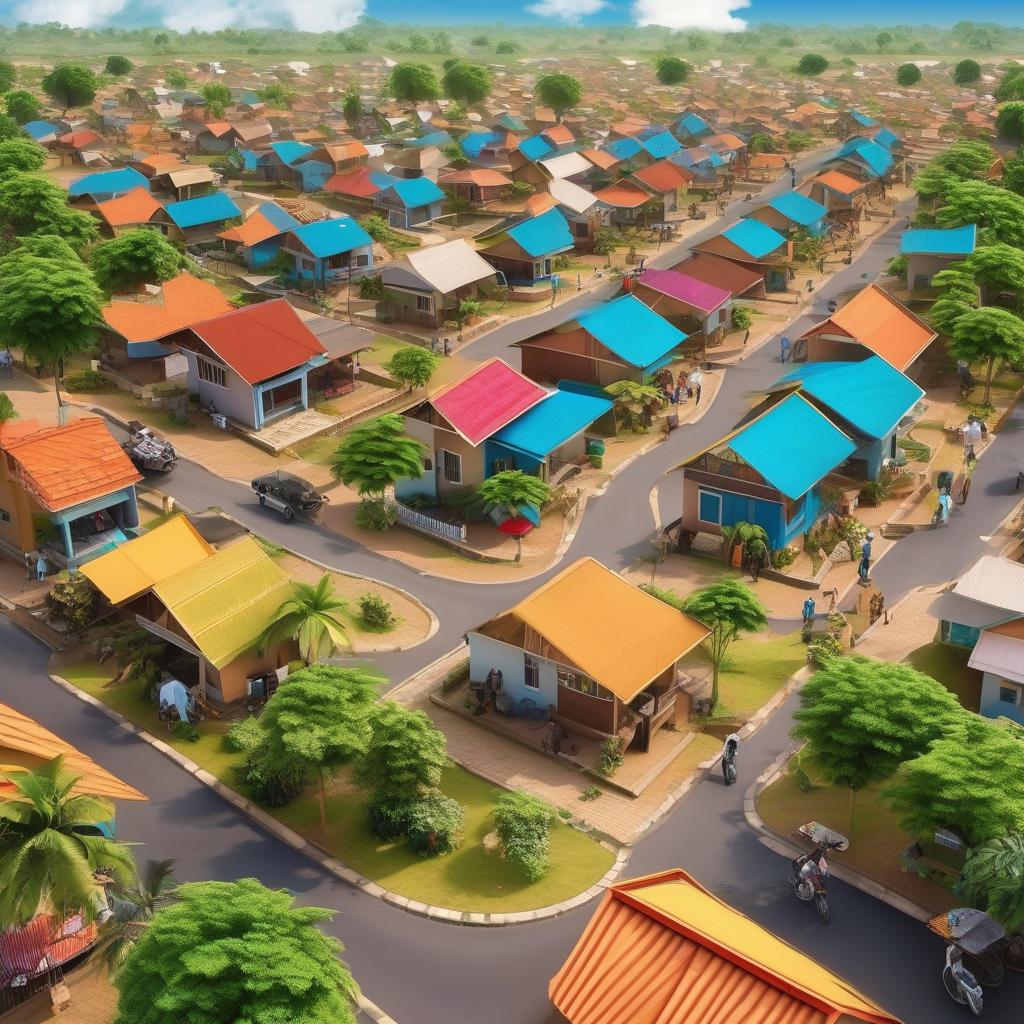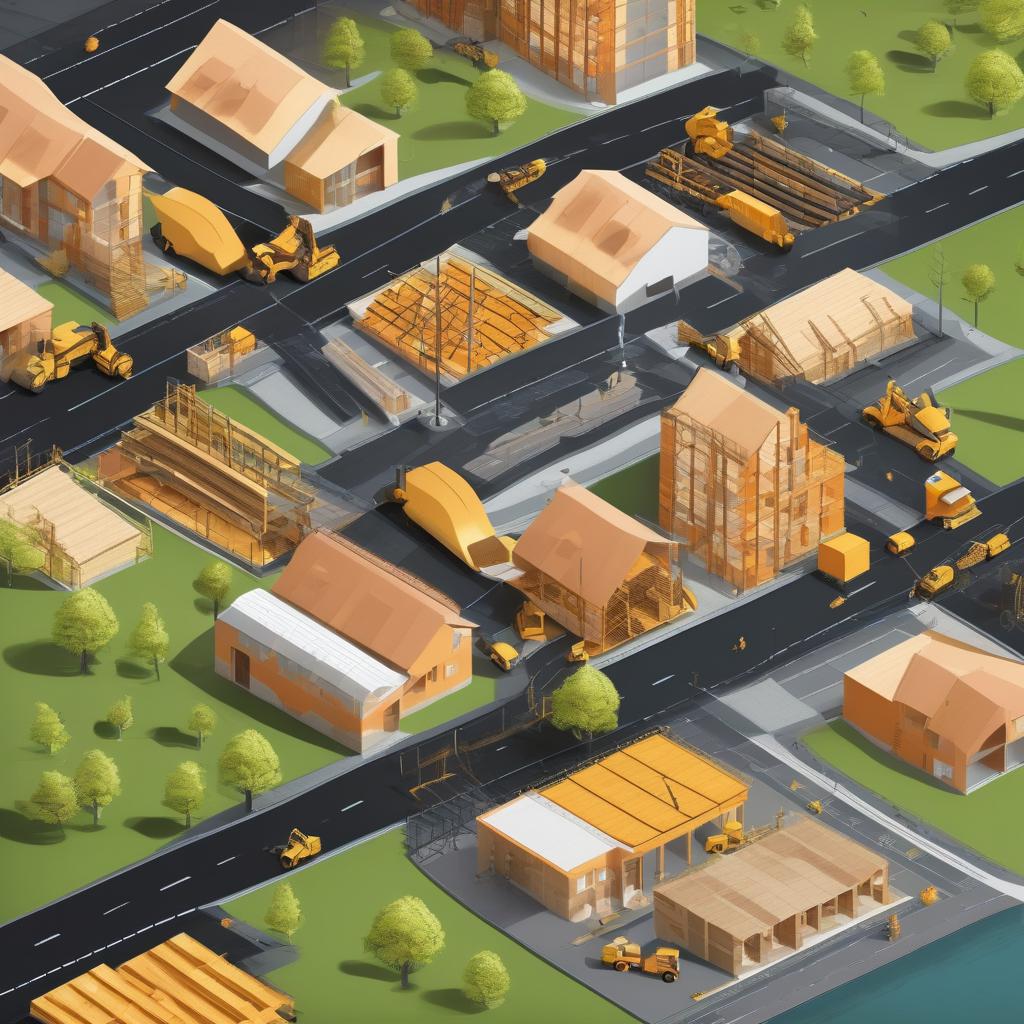Discover the hidden costs of building in Ghana and gain expert tips on how to avoid unexpected expenses. Ensure your construction project stays within budget with our insightful guide. Building a home or commercial property in Ghana is an exciting venture, promising ownership and long-term investment returns. However, beneath the surface of architectural dreams lie hidden costs of building that can derail budgets and timelines. From land disputes to fluctuating material prices, these unexpected expenses often catch first-time builders off guard.

This article uncovers Ghana’s most common hidden construction costs, provides actionable mitigation strategies, and answers frequently asked questions to empower your building journey.
1. Land Acquisition Pitfalls
The Hidden Costs: Securing land in Ghana is fraught with risks like double sales, encroachments, and unresolved inheritance disputes. A 2020 report by the Ghana Lands Commission revealed that 60% of land-related court cases involve conflicting ownership claims.
Real-World Example: In Accra’s prime East Legon area, a developer paid $50,000 for a plot, only to discover the seller had no legal title. After two years in court, the land was awarded to another claimant.
How to Avoid It:
- Conduct a title search at the Lands Commission to verify ownership.
- Hire a licensed surveyor to map boundaries and confirm the land is free from encumbrances.
- Insist on an indenture (legal document) signed by family heads or traditional authorities for customary land.
Pro Tip: Partner with local real estate attorneys like Bentsi-Enchill, Letsa & Ankomah for due diligence.
2. Regulatory Fees and Permit Delays
The Hidden Cost: Building permits, environmental impact assessments (EIAs), and zoning approvals can add 10–15% to your budget. Delays in processing permits (often 3–6 months) also inflate labour and material costs.
Ghana’s Key Permit Costs (2023)
- Building Permit: 0.5% of total project cost (per Local Government Act 2016, Act 936).
- Environmental Protection Agency (EPA) Permit: 500–500–2,000 for EIAs.
- Fire Service Certification: 100–100–500.
How to Avoid It:
- Submit permit applications early with complete documentation.
- Budget for “facilitation fees” (unofficial charges) to expedite approvals.
- Use approved professionals (architects, engineers) to streamline the process.
Source: Ministry of Local Government and Rural Development (MLGRD).
3. Inflation and Material Price Volatility
The Hidden Cost: Ghana’s 40% cement price hike in 2022 (Ghana Statistical Service) and fluctuating steel costs due to currency depreciation can blow budgets by 20–30%.
Cost-Saving Strategies:
- Buy Local: Use Ghanaian-made materials like Ghacem cement or sintered stone from Art Stone Ghana.
- Bulk Purchasing: Partner with hardware stores like KEDA Ghana for wholesale rates.
- Precast Concrete: Reduce waste with prefabricated slabs and columns.
Case Study: A Kumasi developer saved 15% by switching from imported tiles to locally quarried granite.
4. Skilled Labour Shortages
The Hidden Cost: Poor workmanship leads to rework, which consumes 10–25% of budgets. A 2021 World Bank study found Ghana’s construction sector lacks 50% of the needed skilled workers.
Solutions:
- Hire certified contractors via the Ghana Construction Industry Council.
- Invest in training through institutions like the Building and Road Research Institute (BRRI).
- Supervise daily progress and use fixed-price contracts to avoid scope creep.
5. Utility Connections
The Hidden Cost: Electricity, water, and sewage connections for remote sites can cost 5,000 5,000–15,000. Delays in ECG or GWCL approvals further increase expenses.
How to Avoid It:
- Confirm utility availability before purchasing land.
- Negotiate with providers for subsidised rates under Ghana’s “Rural Electrification Program.”
- Install solar panels or boreholes as backups.
6. Unplanned Design Changes
The Hidden Cost: Mid-construction design revisions (e.g., adding rooms) can inflate costs by 30%.
Prevention Tips:
- Finalise designs with licensed architects before breaking ground.
- Allocate a 10–15% contingency fund.
- Use 3D modelling tools to visualise outcomes.
7. Maintenance and Post-Construction Costs
The Hidden Cost: Poor-quality materials lead to frequent repairs. A 2022 GREDA report found 40% of new homes require major maintenance within five years.
Mitigation:
- Use weather-resistant materials like aluminium roofing.
- Schedule annual inspections for plumbing and electrical systems.
- Invest in termite-proof coatings for wooden structures.
8. Legal Disputes and Litigation
The Hidden Cost: Court cases over contracts or land can stall projects for years. Legal fees average 3,000 3,000–10,000.
Avoidance Strategies:
- Draft clear contracts outlining timelines, payment terms, and penalties.
- Use arbitration through the Ghana Arbitration Centre to resolve disputes faster.
Conclusion
Building in Ghana requires meticulous planning, local expertise, and proactive risk management. By understanding hidden costs and adopting preventive measures, you can transform your project from a financial burden into a rewarding investment.
FAQs
- How do I verify land ownership in Ghana?
Search for the Lands Commission and obtain a Land Title Certificate. - What’s the average cost per square meter for building in Ghana?
Between 500 500–1,200, depending on location and materials (GREDA, 2023). - Can foreigners own land in Ghana?
Yes, but leasehold agreements (up to 50 years) are required for non-citizens. - How long does it take to get a building permit?
1–3 months if documentation is complete. - What’s the best way to handle contractor disputes?
Include arbitration clauses in contracts and seek mediation through the Ghana Institution of Surveyors.


